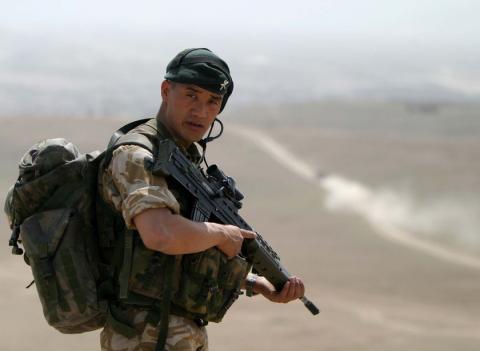A second tier emerges

It may well be a decade or more before we can fully appreciate the historical significance of events unfolding in Ireland today. We're just too close to it all.
The same could be said for the ever-shifting international context in which we find ourselves.
Just look at Europe. It's not a coincidence that as we come to contemplate a new reality nationally (a new dimension of sovereignty even), the state of the union is also changing. This is where the common market and everything that has since followed has brought us. And, I suppose, we it.
The financial uncertainty infecting the eurozone is dictating a pace of integration that is unprecedented in the brief history of the EU.
Lisbon was meant to be 'it' for the time being, but the efforts now underway in Europe, led by Germany's Chancellor, Angela Merkel tell a different story. It is difficult to see where we will end up.
And yet the more crucial issue may be whether or not we end up there together. It is clear now that the European Monetary Union as currently constituted, cannot continue.
But as the EMU evolves to address the realities of a post-financial crisis world, will the political landscapes of individual countries be able to evolve with it? The possibility of a two-tier union raises its head once again.
This isn't a new dilemma. Between the two Lisbon Treaty referendums in Ireland there was much talk of an emerging two-tier system in the EU – of a union where members moved at different speeds depending on what was politically desirable for each. This didn't happen over Lisbon. But could it happen over money?
The architects of the European Coal and Steel Community held that economic integration, by degree, would pull us together politically until the two were so interwoven we were all stuck with each other. It is this fundamental thesis that is being stress-tested today.
It won't be until each member of the eurozone is back to financial terra firma that we will know the answer. Because it will very much depend on how each of us got there. And, more importantly, what the structure of our financial decision making apparatus then looks like.
Ultimately, resistance may be futile.
Though economic imperatives are in the driving seat at the moment, recent events in London may point to another driving force behind European integration in the years to come. To a very different type of hierarchy, a very different type of union.
And if the euro survives its first and greatest test, this new direction may well be as significant to the European project as its very beginnings.
This week, the UK and France signed a 50 year defence pact. That's a long time when you consider that the EU itself is only nine years older.
And the agreement is substantial to say the least: A joint expeditionary force is to be created, across the armed forces, with a single commander. Equipment and strategic capabilities, including aircraft carriers are to be shared. Most significantly, the French and UK nuclear weapon complexes are to begin cooperation.
An upper tier is emerging before us, and it is along military lines.
Yes these countries have co-operated before in respect of combat operations, be it within UN-mandated missions or without, as allies in NATO or as individual sovereigns. But this is something quite different to the deployment of troops for a specific purpose or in pursuit of a shared objective.
This has the air of permanence about it (think how much has changed in the last 50 years). The air of pooled sovereignty or co-dependence. Something far deeper than a trade agreement. One's defence capabilities, after all, are the means by which one's sovereignty is maintained.
This is actually envisaged in the Lisbon Treaty and goes by the phrase 'permanent structured cooperation'. It allows for other countries to opt in once their capabilities fulfil the relevant criteria (and if they chose to do so).
That the France-UK deal is currently not constituted under treaty articles is irrelevant. The seedlings of a European army, with a nuclear weapon capability, are being planted.
Germany is not involved yet but that is likely due to historical sensitivities. It too will ascend to this new tier in time. It must as the union's financier, and because of ambition.
This triumvirate is already known as the EU3, a de-facto upper tier, from their dealings with international security issues on behalf of the other member states (most notably in relation to Iran and North Korea).
When their elevated status assumes a militaristic dimension, the union will be in very different territory altogether. Far from what any harmonisation of corporation or income taxes across member states may look like, for example.
While financial necessity will dictate the constitution of the EU in the immediate future, perhaps even its membership, once this crisis has passed and the dust has settled, the way forward will be in boots and fatigues.
Perhaps this then is the ultimate expression of the European project initiated by Schuman & Co. all those years ago. How better to prevent wars between opposing armies on one continent than by merging them in to one? Is this not the culmination of true political and economic integration?
Of course it may end up being a far more dangerous prospect for the people to have one army with no opposition. But that's another day's debate.
